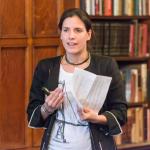Most economists believe that their science is able to provide solutions to difficult social problems. More specifically, they argue that their “core” theories and tools are made relevant once they are tailored to specific real-world issues, supported by empirical analysis, and translated into policy advice. This set of practices has been captured by economists in the sprawling yet ambiguous notion of “applied economics,” a body of literature that draws on the theoretical core ideas of economics to shed light on an enormous range of real-world issues and create policy-relevant lines of research. The dual process by which economics became unified around a theoretical “core” and fragmented through its application in a myriad of fields, with their own journals, societies, and conferences has not yet been the subject of extensive research. This project moves this literature forward through the examination of a series of three case studies pertaining to the development of applied economics.
Becoming “Applied,” Becoming Relevant? Three Case Studies on the Transformation of Economics since the Mid-Sixties
Leaders
